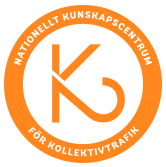Transport policies in Western Europe are increasingly framed in terms of sustainable mobility. This is a response to an urgent need to tackle adverse consequences of the transport system and implies changes in discourses related to transport. Exploring sustainable mobility is a fruitful way of studying discursive development in a policy field historically connected to priorities radically different from sustainability. More precisely, what reasons are provided in favour of sustainable mobility in contemporary transport policies? What underlying norms and assumptions does the notion of sustainable mobility rely upon? And what subjects are emphasised in the discourse? The thesis argues that these questions can be answered by studying the social construction of sustainable mobility in the transport policy field. The thesis contributes to the emerging field of critical transport studies by empirically investigating a concrete sustainable mobility discourse. This is done through an in-depth case study of a Swedish national sustainable transport policy, the Urban Environment Agreement. The case allows for a study of how power and conflicts permeate planning and policy for sustainability. The thesis advances a discourse-analytical perspective that is hitherto lacking in transport research and develops a novel framework building on critical discourse analysis and critical realism. This framework is subsequently deployed to empirically map discursive patterns of statements related to sustainable mobility, to determine how these patterns interrelate, and to interpret the broader implications of the findings. The central claim of the thesis is that sustainable mobility needs to be understood as a product of naturalised representations of growth. Arguably, societal norms and assumptions about forms of growth govern how sustainable mobility is conceived and acted upon through policies. This constructs the continuous increase of mobility as a naturally occurring phenomenon and excludes alternatives to high-mobility society. Two dominant constructions of sustainable mobility are identified in the discourse: ‘sustainable mobility as a necessity’, building on ideas of managing growth, and ‘sustainable mobility as progress’, connected to ideas of promoting growth. The author proposes that a third way of constructing sustainable mobility, ‘as restriction’, in the sense of limiting growth, is silenced in the discourse. Although there are differences among these constructions, the discourse contains several naturalised representations that characterise the discourse overall. While growth is constructed as inevitable, sustainability is constructed as an imperative. As a result, a transition to sustainable mobility is constructed as a salvation, justified by several logics of sustainable mobility. These logics discursively link contradictory notions of growth and sustainability. The thesis develops a wheel of growth metaphor to capture such key elements and linkages of the discourse. Finally, the discourse in focus is contrasted against central features of the more ‘traditional’ transport policy discourse. This shows that the sustainable mobility discourse of the Urban Environment Agreement policy partly challenges the traditional focus on automobility. At the same time, the present discourse reproduces assumptions of ‘predict and provide’, travel time minimisation, and the emphasis on economic growth. The conclusions of the thesis contribute to the ongoing discussion among policy makers, academics, and social movements about how to respond to the societal challenge of a transition towards a more sustainable and just transport system
